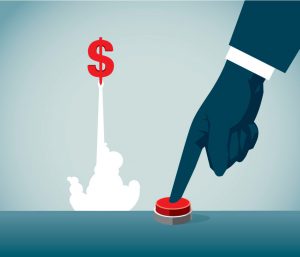There’s been a minor revolution in the consumer world in the last few decades. While there have always been groups of people who were interested in eco-friendliness, shopping “green” wasn’t fully a mainstream idea – how many times do you think the word “sustainable” was used in the 1980s, for example? But now, it seems like every product and every store is trying to tout its eco credentials, because it’s what consumers want. And that push towards sustainability is a good thing!
But, with that being said, it’s only a good thing if the manufacturers and stores clamoring to show how green they are are actually doing and making things in a sustainable way. And if they’re not, they’re simply greenwashing us to get our money by lulling us into a false sense of their eco-friendliness. So how can you tell if a company is engaging in greenwashing?
Going Green by the Numbers
Before we talk about greenwashing, let’s take a look at how we, as consumers, feel about buying “green.” The numbers show pretty clearly that the revolution we mentioned above has taken place. Just check out these stats:
- 77% of Americans are concerned about the environmental impact of products they buy
- 57% of consumers are willing to change their purchasing habits to help reduce negative environmental impact
- 45% of shoppers wanted to find eco-friendly or environmentally responsible brands
- 92% of customers are more likely to trust a brand that is environmentally or socially conscious
- 66% of consumers worldwide say they’re willing to pay more for sustainable brands
- 45% of consumers’ primary purchasing motivator is a company with a reputation for being environmentally responsible
While we might see a fascinating snapshot into how our fellow shoppers feel about sustainability in the numbers above, businesses see dollar signs. Two-thirds of consumers are willing to spend more on sustainable products? That’s huge, and businesses want to get in on that. And while some are doing so legitimately, others might not be doing so, so let’s take a look at what it means to greenwash consumers, and how you can spot it.
What Is Greenwashing?

According to Investopedia, greenwashing is defined as “the process of conveying a false impression or providing misleading information about how a company’s products are more environmentally sound.” In other words, it’s all about businesses making claims that their products (or the way they do business) are environmentally friendly, when in reality they’re exaggerating those claims, or trying to pull one over on consumers.
And these misleading claims have been around for decades now. The term “greenwashing” was actually coined in 1986 by environmentalist Jay Westerveld, in a critical essay inspired by the irony of the “save the towel” movement in hotels that had little impact beyond saving hotels money in laundry costs. Hotels were asking guests to “help the environment” by reusing their towels, but were only doing so in a bid to save money.
Since then, a whole lot of companies have tried to mislead consumers into thinking they’re greener than they are (think energy companies, for example). These businesses greenwash through a process of renaming, rebranding, or repackaging their products/practices, and try to convey the idea that they’re more natural, wholesome, or free of chemicals than competing brands.
But, in reality, these businesses are just using marketing tricks to make you feel like you’re making sustainable choices – and enjoying the extra money that you’re willing to spend on their exaggerated claims without actually doing much – if anything at all – to help the environment. So what are some of the signs of greenwashing that you should be looking out for?
How to Spot Greenwashing
It’s not necessarily easy being a conscious consumer, we know. You’ve got to do a bit of research to know that what you’re buying aligns with your expectations. So to help you out a little, here are the “six sins of greenwashing,” as laid out by Terrachoice Environmental Marketing, which can help you figure out if a business is engaging in greenwashing, and is not worth your extra hard-earned money.
1. Hidden trade-offs
So maybe a company uses recycled paper in their products, but is that the only thing green about them? If it is, and if they’re not also paying attention to, for example, the impacts of their manufacturing process or supply chain, they’re probably greenwashing. Suggesting that their product is “green” based on only one attribute is a classic greenwashing tactic, and they’re relying on you not to look any closer at what the trade-offs are for using that recycled content. So look for information that gives a bigger picture of their environmental impact.
2. Unproven claims
If a company makes a claim about their eco-friendliness, but there is no easily accessible information to back up their claims, or any third-party certifications, they’re probably greenwashing. Sure, no company is going to have an entire brochure attached to their products with detailed proof of how they are as sustainable as they claim, but they could have a verifiable certification listed, or a website to check out that will give you all the information you need (and if it’s a third-party website that backs them up, all the better).
3. Vagueness
It’s time we all realize that some words and phrases, as used by companies, just don’t have any meaning anymore. Take these, for example:
- Non-toxic – Ok, so it won’t kill you? Good to know, but what does this phrase actually mean? Not much, since everything is potentially toxic in a high enough dosage, including water. Not only that, but this is a completely unregulated term, so there is no actual way to define it when it comes to product safety.
- All-natural – Meh, so is formaldehyde, but we’re probably not going to add it to our breakfast cereal. And again, another unregulated, undefined term.
- Green, environmentally friendly, or eco-friendly/conscious – These terms have virtually no meaning, especially when not backed up by any specific, verifiable information.
- Clean – Often used with beauty products, this term also has no real definition.
4. Irrelevance
You wouldn’t be impressed if your shampoo claimed it was better than the competition because it cleaned your dishes better, right? So don’t get sucked in by irrelevant green marketing claims. For example, if a company touts the fact that their product is chlorofluorocarbon (CFC, a known ozone depleter) free as a reason that they’re better than their competitors, be wary. Why? CFCs have been banned for years, so no company is allowed to use them in their products. 
And irrelevancy can also be a bit of a bait and switch situation. For example, an Australian plastic bag company was fined because it claimed it had switched the type of plastic it uses to a “biodegradable” plastic. Sounds good, but for the product to actually make a difference in terms of the tons of plastic we’re putting into the environment, it would have to be “compostable”. “Biodegradable” plastic technically doesn’t fully degrade, but instead just breaks down into smaller parts unless it’s processed in a digester specifically designed to create the conditions for biodegradation.
5. “Better” choices, or the lesser of two evils
Sometimes we really want something that’s not great for us or the environment, and companies will latch onto that by claiming their product is the “better” option for that not-so-good thing, or the lesser of two evils. Seriously, what’s the point of “organic” cigarettes, for example? Or how about companies that market water sold in plastic bottles? They can sing the praises of their environmental initiatives all they want, but in the end, they are still selling the single-use plastic that is clogging up oceans and landfills, and depositing microplastics everywhere they go.
6. Outright lies
While companies telling straight-up fibs is rarer than using misleading marketing tactics, some businesses do engage in this practice. That’s why it’s important to check claims and certifications, if a company’s sustainability is important to you.
With the rise of the more conscious consumer has come the rise of greenwashing – and we’re not saying that all businesses that engage in it are even doing it on purpose. Some of them are ill-informed about the impacts of materials they use, or the way their supply chain works, for example, so they end up accidentally making unsubstantiated claims. But sometimes the claims they make are meant to be misleading, and rely on us taking their claims at face value, or making assumptions about what is green or not based on environmental folklore. So, if sustainability is important to us as consumers – as it seems to be more and more – it’s up to us to call out these companies, and vote with our dollars for businesses that are committed to backing up their claims.
Co-written by Joanna Bowling
